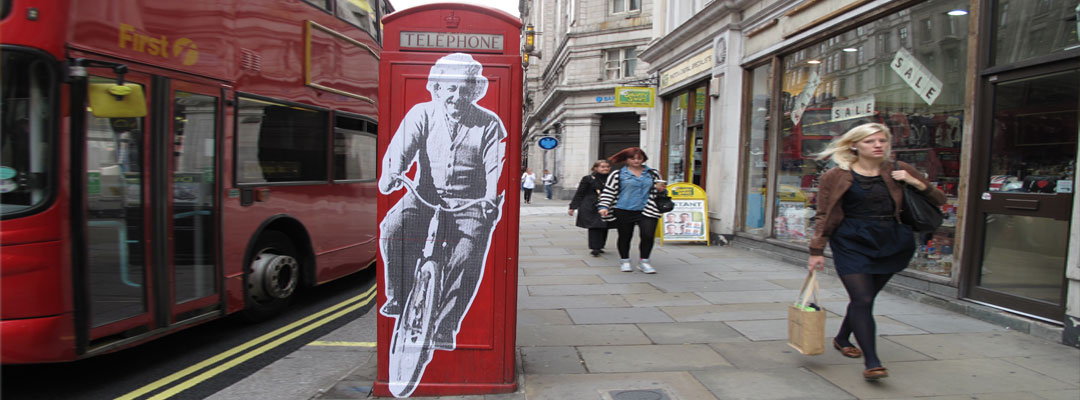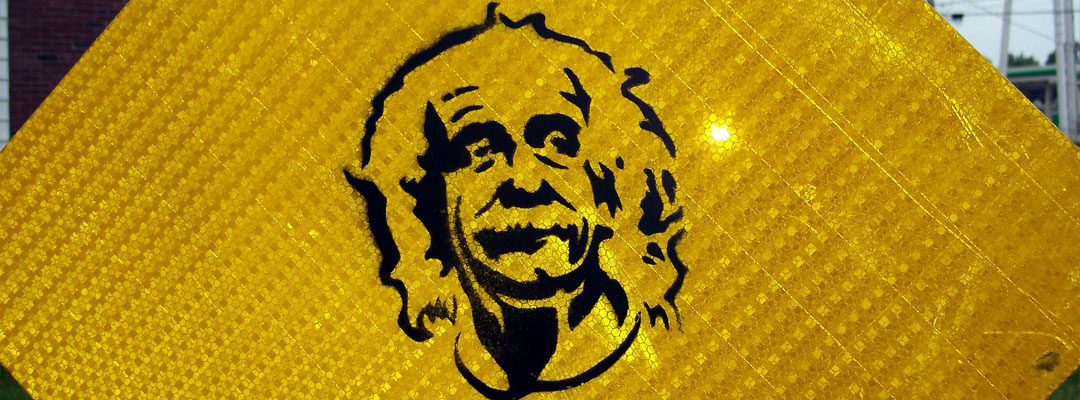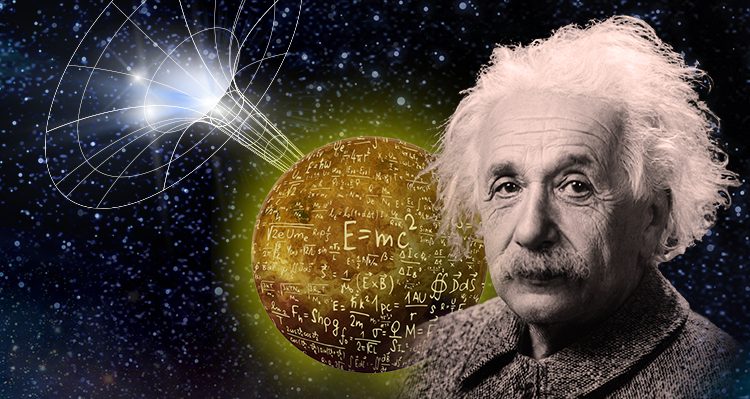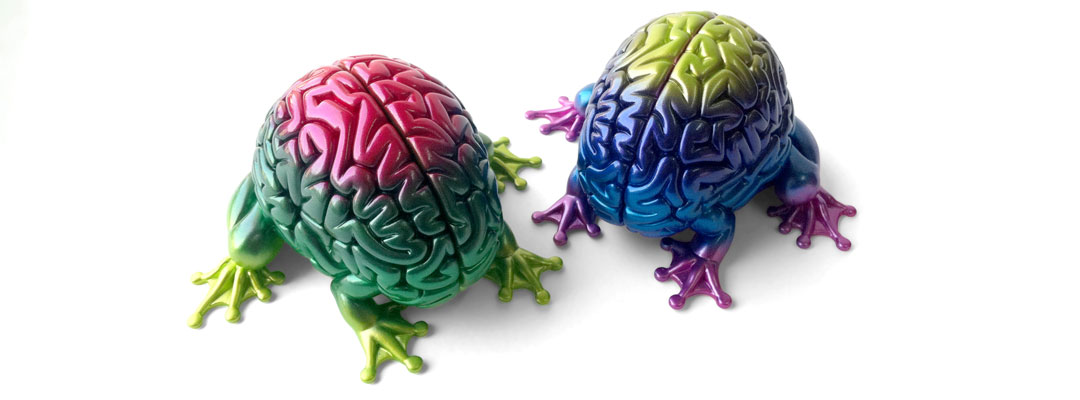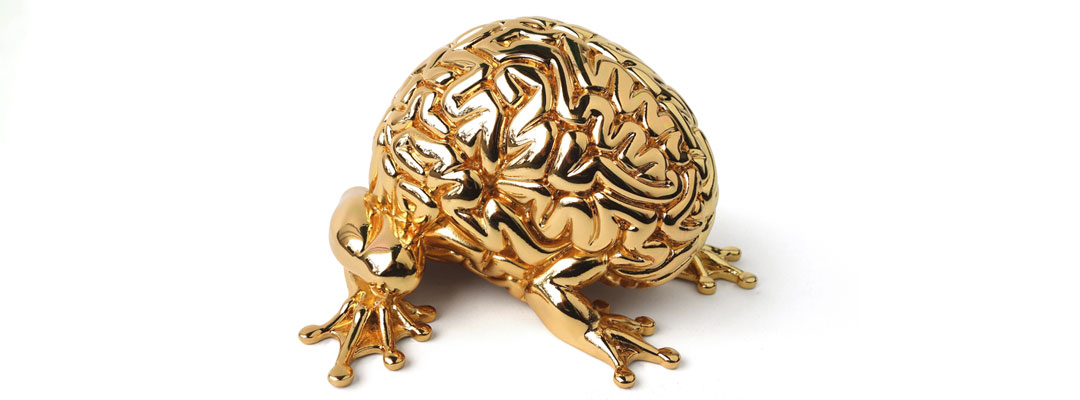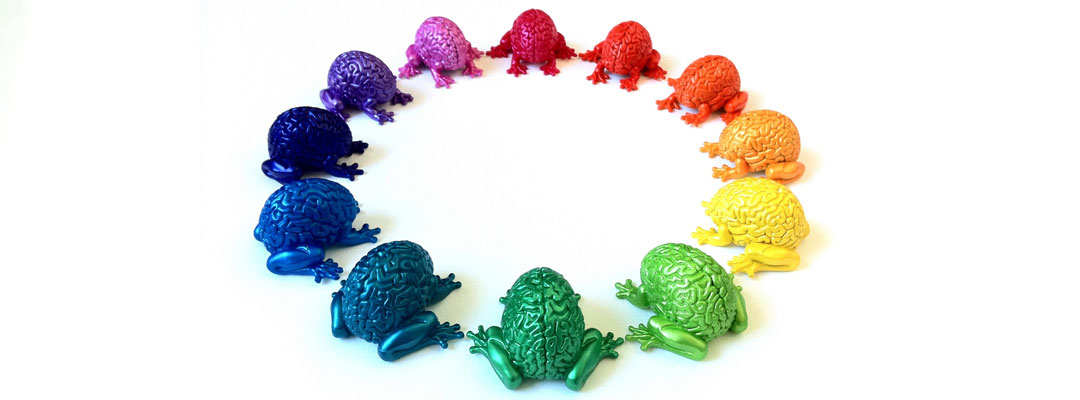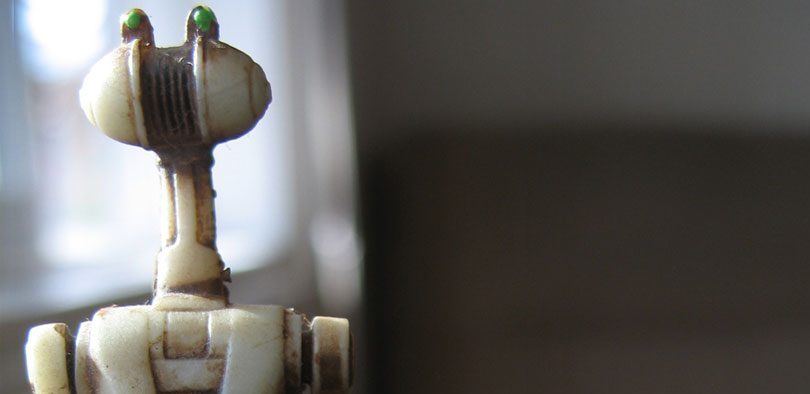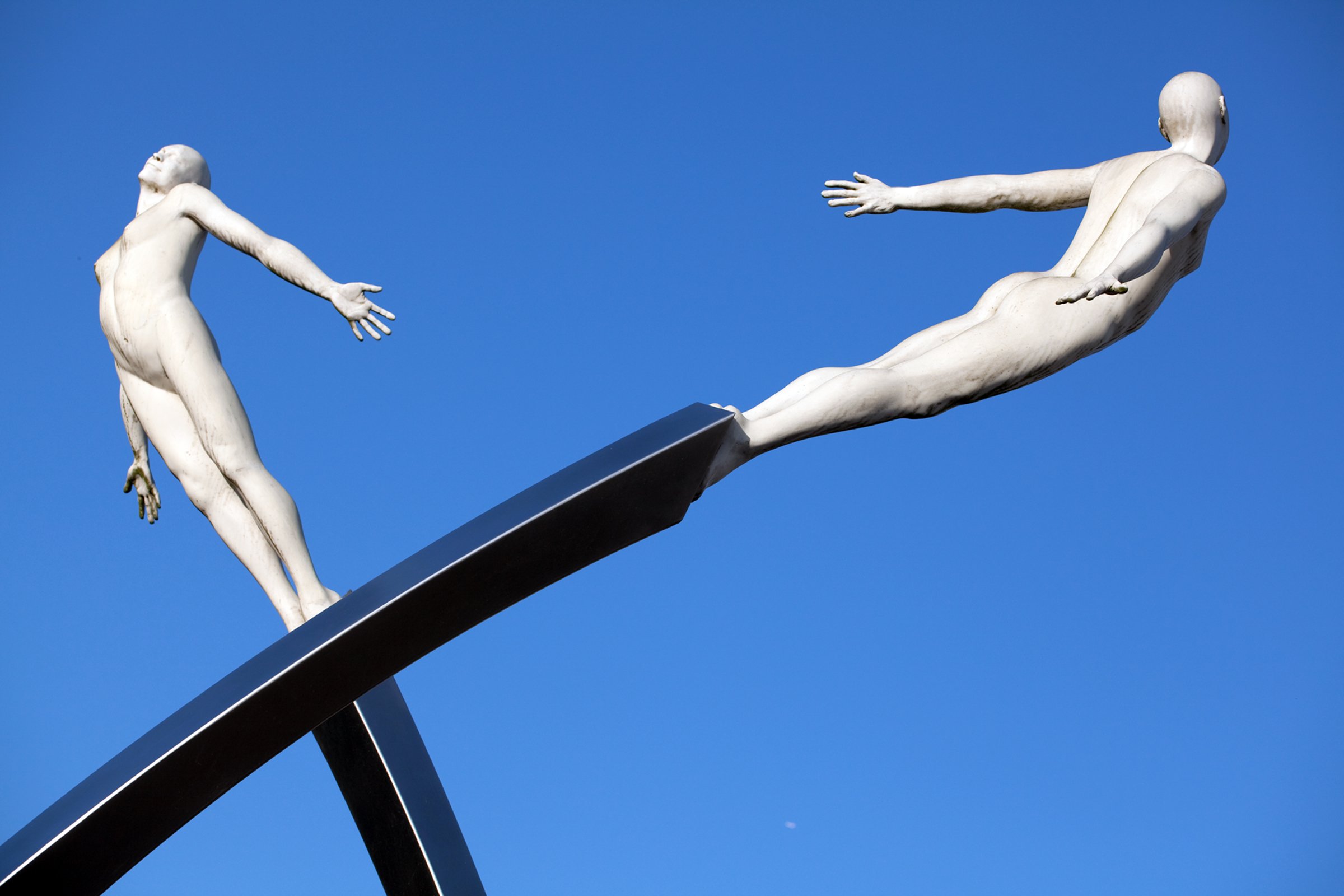Public Events
Chris Smeenk: Einstein’s Path to a New Theory
Stevenson & Hunt Room A - Central Library 251 Dundas St, London, Ontario, CanadaABSTRACT In November 1915, Einstein published a new theory of gravity. This lecture recounts the “rough and winding road” Einstein took in developing his theory, which ended with a dramatic race to the finish. Einstein’s approach was philosophical, partially guided by conceptual puzzles regarding space and motion. We will consider recent critical assessments of Einstein’s [...]
Stathis Psillos: Engaging Philosophy: Einstein on the Method of Science
Stevenson & Hunt Room A - Central Library 251 Dundas St, London, Ontario, CanadaABSTRACT Albert Einstein said that scientists are poor philosophers. Yet, he added that especially in periods of scientific revolutions, scientists should engage in philosophy and should not “surrender to philosophers the critical contemplation of the theoretical foundations” of science. In this talk I will aim to critically examine Einstein’s views on the method of science [...]
Doreen Fraser: Einstein, God, Dice, and Quantum Mechanics
Stevenson & Hunt Room A - Central Library 251 Dundas St, London, Ontario, CanadaABSTRACT Einstein is best known for his contributions to the physics of spacetime, the Special and General Theories of Relativity. However, he also played an important role in the development of quantum mechanics, the other great theoretical advance in twentieth century physics. Einstein’s famous response to quantum mechanics was that “God does not play dice.” [...]
Wayne Myrvold: Einstein and the Atom
Stevenson & Hunt Room A - Central Library 251 Dundas St, London, Ontario, CanadaABSTRACT Einstein's name is widely associated with the "atom bomb," via the formula E = MC2. Less widely known is that he played a key role in providing evidence that atoms exist at all. One of Einstein's early papers was an analysis of Brownian motion, the ceaseless dance of tiny particles, such as pollen grains, [...]
Chris Smeenk: Einstein’s Universe (Classes Without Quizzes)
Stevenson & Hunt Room A - Central Library 251 Dundas St, London, Ontario, CanadaThis lecture is part of the free public lecture series, Classes Without Quizzes, co-sponsored by Western Alumni and the London Public Library. ABSTRACT Einstein developed his theory of general relativity 100 years ago. Join philosophy professor Chris Smeenk for an exploration of Einstein’s distinctively philosophical approach to physics, and how his ideas have shaped our [...]
Einstein: Philosopher | Scientist, 100 years of General Relativity
SATELLiTE Project Space 121 Dundas St, London, Ontario, CanadaEXHIBIT DESCRIPTION Explore the genius of Einstein through a uniquely philosophical lens. On the centennial of Einstein solving the puzzle of General Relativity, this interactive exhibit delves into the philosophical groundwork that informed Einstein’s approach to science. Manuscript replicas (Courtesy of the Albert Einstein Archives, the Hebrew University of Jerusalem, Israel.) illustrate in detail Einstein’s [...]
Evan Fraser: Food in 2050: The Challenge of Feeding 9 Billion
Wolf Performance Hall - Central Library 251 Dundas St, London, Ontario, CanadaABSTRACT Creating food systems capable of sustainably, equitably, and nutritiously feeding 9 billion people while dealing with climate change is one of the 21st century’s “Grand Challenges”. Meeting this challenge is about more than just producing enough - indeed, we already produce enough for everyone, but more than a billion are overweight while almost a [...]
Cordelia Fine: Let Toys Be Toys: The Science and Ethics of Gendered Toy Marketing
Wolf Performance Hall - Central Library 251 Dundas St, London, Ontario, CanadaABSTRACT The gendered marketing of toys is under considerable scrutiny, with consumer-led campaigns against it invariably giving rise to vigorous debates. Critics argue that gendered toy marketing is socially and developmentally harmful; defenders see it as reflecting and responding to boys’ and girls’ fundamentally different interests. In this talk, based on work co-authored with Charles [...]
Cordelia Fine: The myth of the Lehman Sisters? Sex, testosterone, and financial risk-taking
Room 100 - Physics and Astronomy Building Physics and Astronomy Building, Western University, London, Ontario, CanadaABSTRACT There is growing scientific interest in the role of testosterone in financial risk-taking – a topic of considerable public interest too, with suggestions that there is “too much testosterone on Wall Street”. Both research and debate is often grounded in an implicit model in which testosterone is presumed to be the proximal mechanism underlying [...]
Andrew Light: What Happened in Paris? How Differentiation Evolved to Create a Global Climate Agreement.
Room 2202 - Spencer Engineering Building Spencer Engineering Building, Western University, London, Ontario, CanadaABSTRACT Last December, after twenty years of apparent incremental progress, over 190 countries meeting under the auspices of the United Nations Framework Convention on Climate Change managed to create what promises to be a lasting international climate agreement. Debates continue however over whether the greenhouse gas mitigation commitments that parties brought to the table in [...]
Catherine Stinson: The Body in ‘Mental Illness’
Martha Bishop Community Room - Landon Library 167 Wortley Road, London, Ontario, CanadaABSTRACT If mental and physical are separate domains, “mental illness” should not involve the body. But bodily symptoms are common among people diagnosed with psychiatric disorders. Examples are altered perceptions of hot and cold, and hallucinations of touch. Overlooking the body may contribute to the stigma of psychiatric diagnosis. SPEAKER PROFILE Catherine Stinson is a [...]
Jackie Sullivan: Understanding Mental Illness: Will a Single Explanatory Model Do?
Martha Bishop Community Room - Landon Library 167 Wortley Road, London, Ontario, CanadaABSTRACT The medical model of mental illness is often characterized as assuming that mental illness is a disorder of the brain. In contrast, the biopsychosocial model allows for the possibility that mental illness is caused by a combination of biological, psychological and environmental causes. Which model is superior for understanding, explaining and treating mental illness? [...]
Chris Viger: Brains and Persons
Martha Bishop Community Room - Landon Library 167 Wortley Road, London, Ontario, CanadaABSTRACT Is increasing knowledge of how our brains cause behaviour undermining the very conception of freedom that moral and legal responsibilities presuppose? Is our sense of ourselves as persons under assault from science? Must we rethink criminal responsibility? I present contemporary philosophical views of free will and question how they square with neuroscience. SPEAKER PROFILE [...]
Louis Charland: Why Neuroscience Needs “Passion”
Martha Bishop Community Room - Landon Library 167 Wortley Road, London, Ontario, CanadaABSTRACT After a brief review of the history of affective neuroscience and the theoretical status of emotion in contemporary neuroscience, it will be argued that present day neuroscience suffers from a serious theoretical limitation that is largely due to its focus on short-term observation and reliance on laboratory measurement technologies that restrict it to the [...]
Panel Discussion: Responsible Robotics: Shaping a future with robots worth wanting
Wolf Performance Hall - Central Library 251 Dundas St, London, Ontario, CanadaABSTRACT On the cusp of the robotics revolution we will now encounter robots in our day-to-day lives whether it's a robot to deliver our pizza or greet us in the shopping mall, or having a robot assist a surgeon perform a surgery. Not only will this powerful technology provide us with incredible benefits, relieving us [...]
Aimee van Wynsberghe: Robot Ethics: What is it and why should we care?
Stevenson & Hunt Room A - Central Library 251 Dundas St, London, Ontario, CanadaABSTRACT The 21st century is predicted to be the century of service robots. Service robots differ from factory robots in that they function in unstructured and unpredictable human environments and will even co-operate with humans. They can already be found in: neighbourhood stores for greeting us; hospitals to help with surgeries, rehabilitation, or for the [...]
Aimee van Wynsberghe: The Ethics of Ethical Robots
Room 2202 - Spencer Engineering Building Spencer Engineering Building, Western University, London, Ontario, CanadaABSTRACT Robots are no longer fuel for the imagination of science fiction writers; they are now a part of our personal and professional lives and will become increasingly so in the years to come. They are already a part of surgical procedures and are delivering sheets and medications throughout the hospital. They are becoming a [...]
Alison Gopnik: The Gardener and the Carpenter: What developmental science tells us about relations between parents and children.
Wolf Performance Hall - Central Library 251 Dundas St, London, Ontario, CanadaIn this Rotman Lecture, co-sponsored with Western Alumni and the London Public Library, renowned author Alison Gopnik asks us to think about parenting as a relationship. ABSTRACT Caring deeply about our children is part of what makes us human. Yet the thing we call "parenting" is a surprisingly new invention. In the past thirty years, [...]
Panel Discussion – Editing the Human Genome: The Ethics of Moulding our Future
Wolf Performance Hall - Central Library 251 Dundas St, London, Ontario, CanadaABSTRACT The groundbreaking discovery of the gene-editing tool known as CRISPR allows scientists to precisely, efficiently, and cheaply modify the human genome. This may provide us with the power to cure disease and to unlock the secrets of early human development. It might, in the future, allow us to modify humans in directions that we now only [...]
Julian Savulescu: The Science and Ethics of Human Enhancement
Room 106 - Physics and Astronomy Building 1151 Richmond Street, London, Ontario, CanadaABSTRACT Scandal after scandal has revealed that sport has been experimenting with human enhancement on a massive scale. These are among the most high-profile cases. But in fact human enhancement technologies influence all aspects of life. From students and professionals taking modafinil to enhance cognition, focus and drive, to evidence that SSRIs (anti-depressants) affect moral [...]

